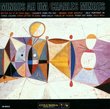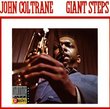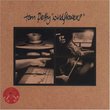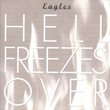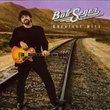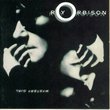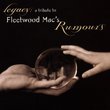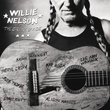| All Artists: John Coltrane Title: Love Supreme Members Wishing: 1 Total Copies: 0 Label: Mca Release Date: 10/25/1990 Genre: Jazz Styles: Avant Garde & Free Jazz, Modern Postbebop, Bebop Number of Discs: 1 SwapaCD Credits: 1 Other Editions: Live Supreme, A Love Supreme UPC: 076732566022 |
Search - John Coltrane :: Love Supreme
 | John Coltrane Love Supreme Genre: Jazz
|
CD DetailsSimilar CDs
Similarly Requested CDs
|
CD Reviews"It's Not For Me to Say ... Giordano Bruno | Wherever I am, I am. | 05/19/2010 (5 out of 5 stars) "... you'll love it. It's not for me to say you'll care ...."
... for Coltrane's playing, that is, or post bebop jazz in general, for that matter. Or for me to say that you'll be comfortable with Coltrane's musical affirmation of his religious "recovery' from drugs and booze. His "love supreme" is not of the flesh in this music; he is seriously seeking transcendence through submission to the Love of God. Whether you'll hear Coltrane's awakened spirituality in the music, or simply some very fine lyrical jazz supported by superb piano-playing from McCoy Tyner, will probably depend on your own sense of transcendence. It's that question of transcendence that interests me. I'm not sure how this will play out in evolutionary terms, but I have to wonder whether the "yearning for transcendence" isn't instinctual in Homo sapiens. Next to Fear and Loathing of Mortality -AKA death - the longing for 'just a little bit' of Transcendence must be the wellspring of all human religious beliefs. That must be why Religion has inspired such a huge amount of the world's great music. Of all the arts - in words, in paint, in stone - music seems to me to have the greatest potential for expressing transcendence of our paltry material existence, possibly because it's the least material in itself. Music exists only immaterially, only in the moment of hearing and in the memory of the hearer. Post-modernist critics now insist that the 'meaning' of a poem or a novel has to be negotiated between the writer and the reader, but the words are solid on the page where they will remain until the paper crumbles. Music is always negotiated between the composer and the "first listener", i.e. the performer. Even jazz improvisation is negotiated by ear; Coltrane's 4-part composition on "A Love Supreme" is after all not finally HIS, but rather a collaboration of four irrevocably individual human beings. At its peak, the negotiation can be ecstatic. So. From Gregorian chant to Bach cantatas to Arvo Pärt or John Coltrane, Religion has always made great Music. Some of that amounts to the merely pragmatic question of patronage; churches have always been splendid performance spaces. I imagine also that the experience of a sense of transcendence through music made fervent believers of many great composers. John Coltrane professed that his religious awakening saved his life from the despair and contempt of his earlier music. The music was the man, whom Lenny Tristano called "all emotion, no feeling." Biographically speaking, Coltrane's "salvation" in life preceded any "salvation" after death that Christians expect. A lot of self-hating drug/booze abusers, many of them musical, have had their lives 'turned around' by "a Love supreme". More power to religion then! In the end, it's not for me to say ...." |

 Track Listings (3) - Disc #1
Track Listings (3) - Disc #1